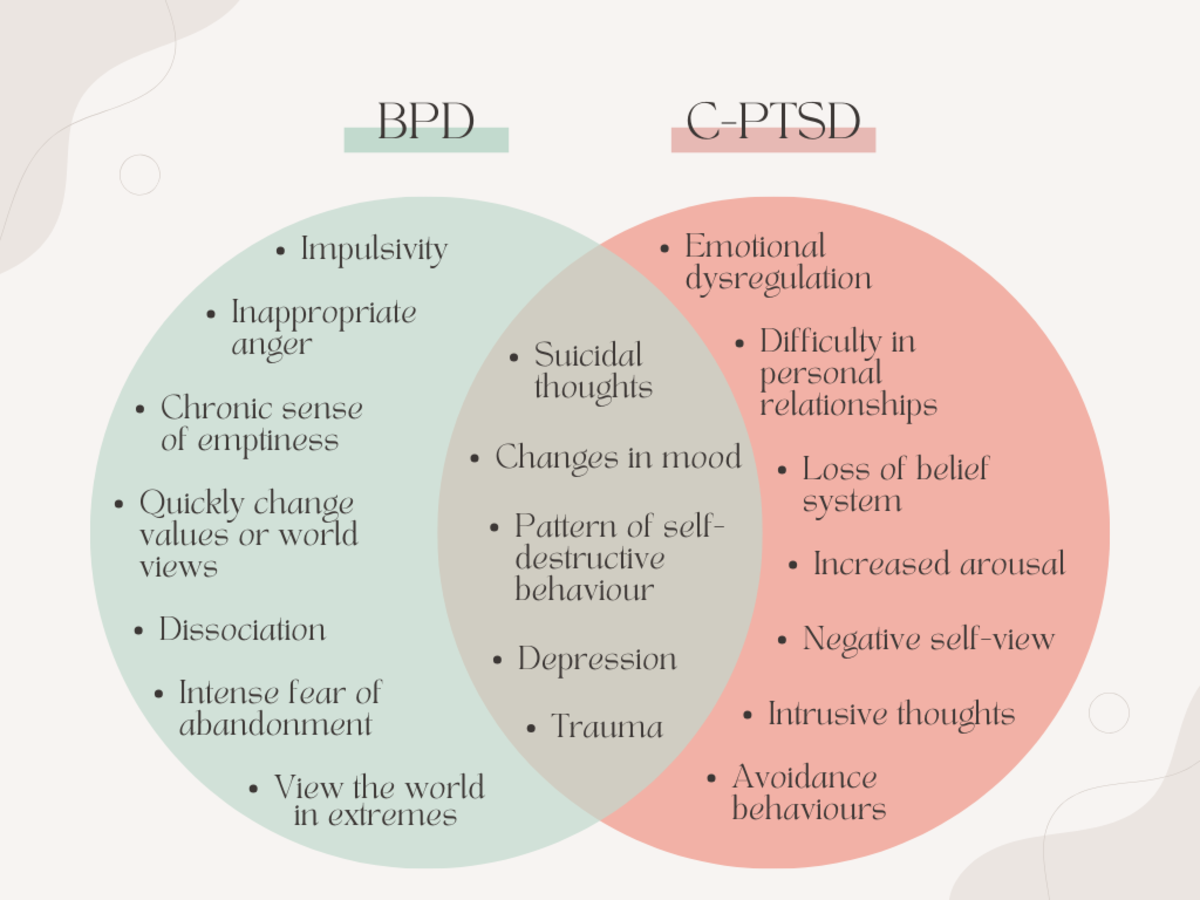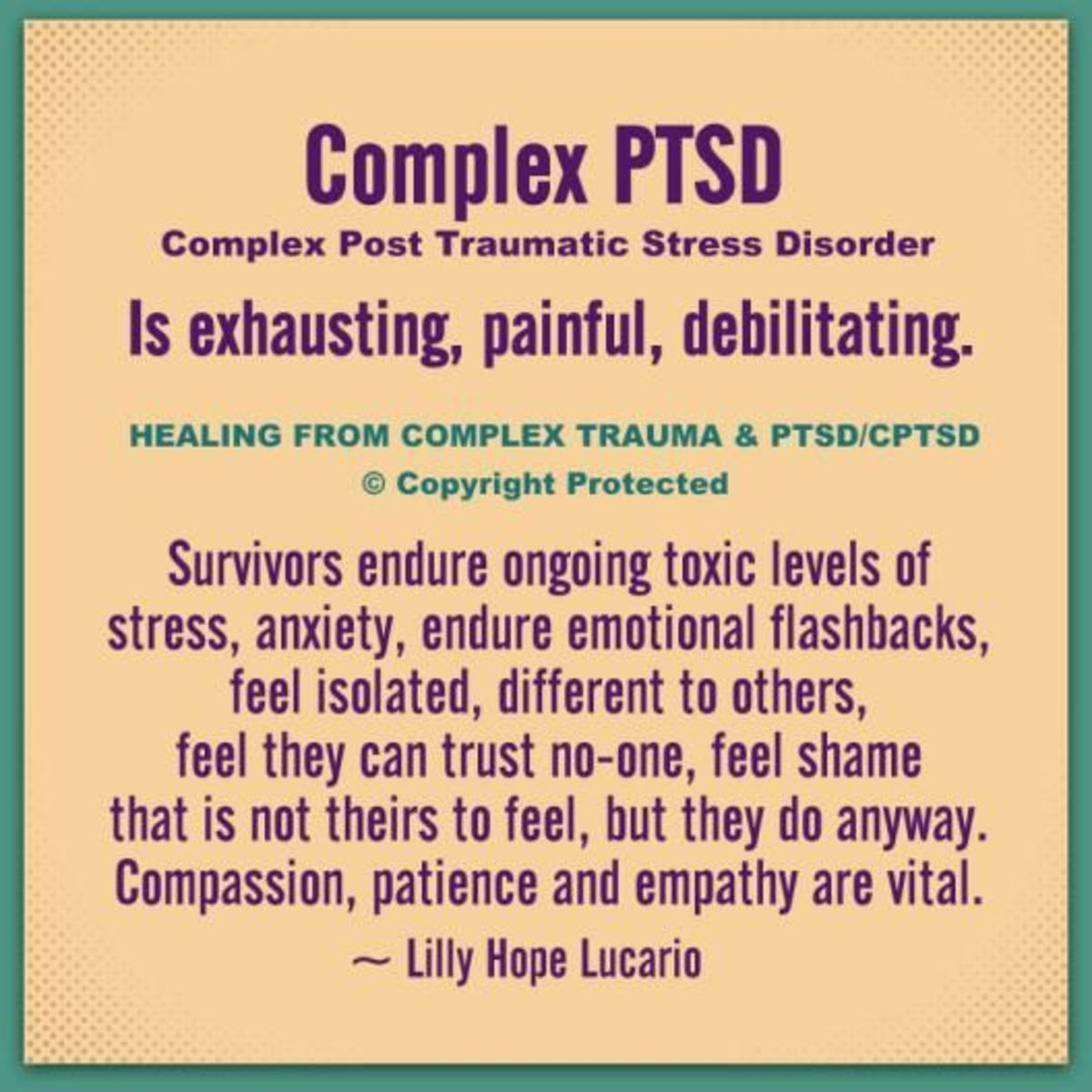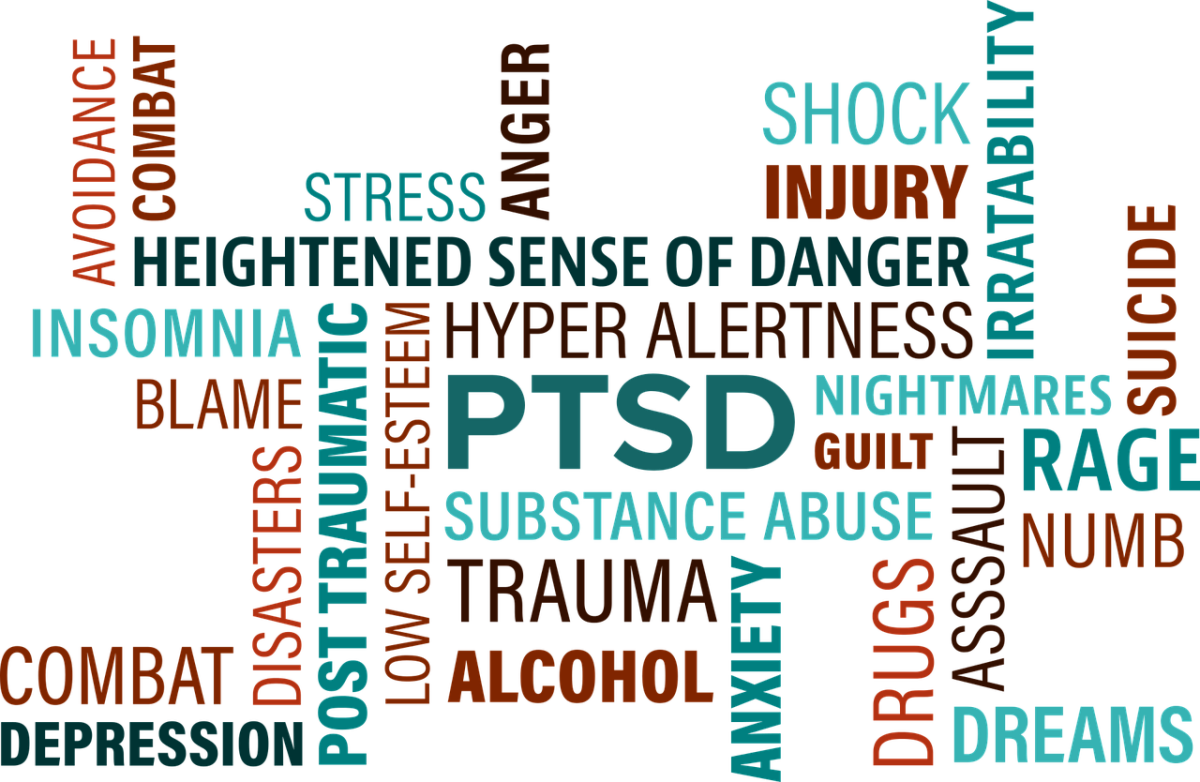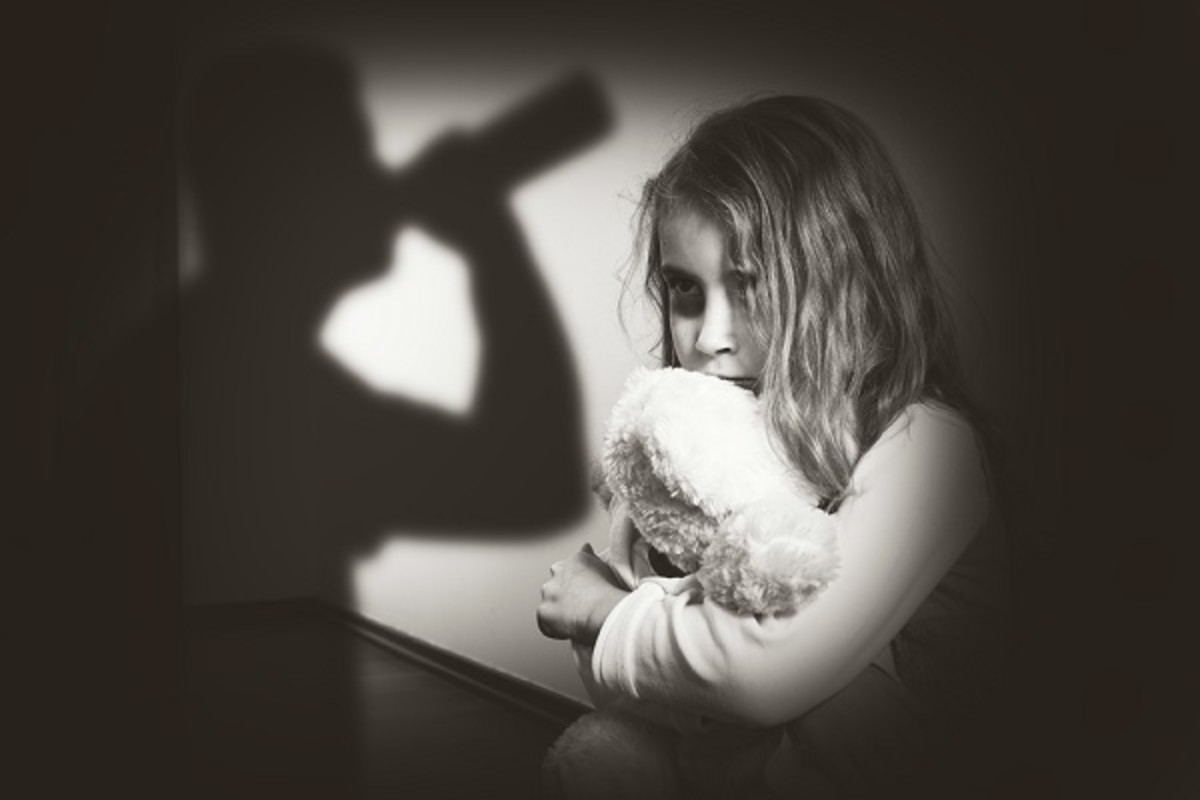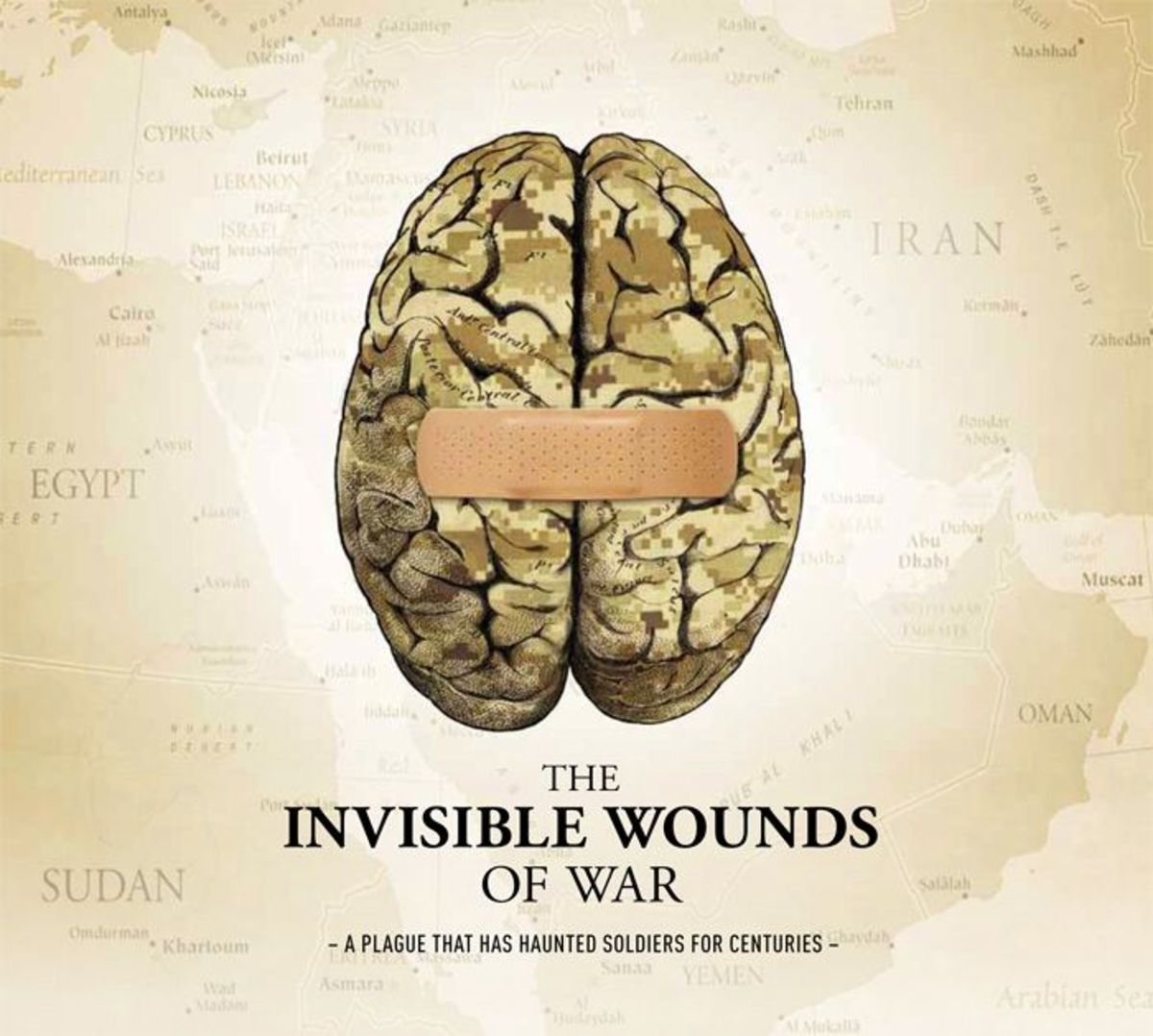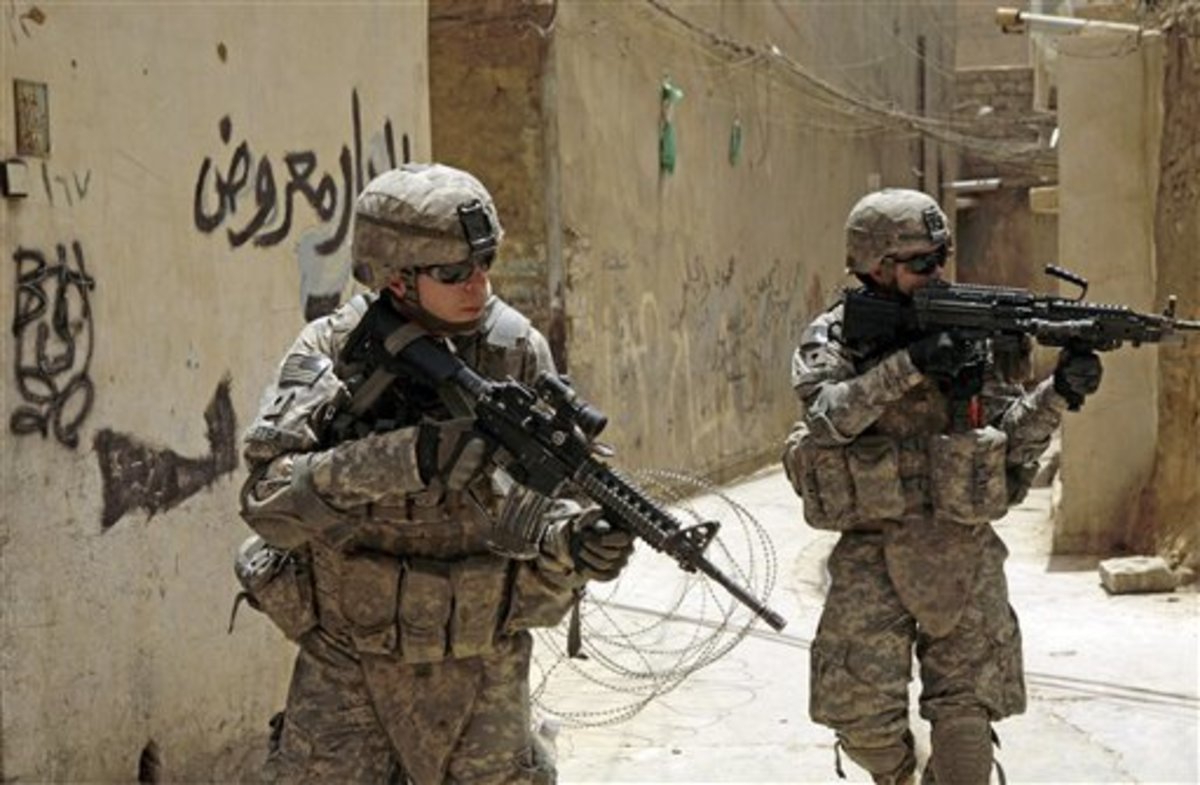- HubPages»
- Health»
- Mental Health»
- Anxiety Disorders
Complex Post-Traumatic Stress Disorder: Causes and symptoms.
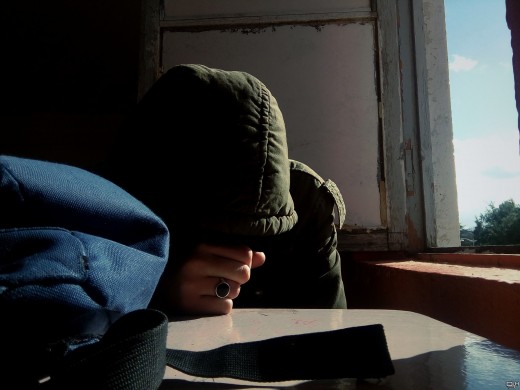
Incest and Child Abuse are Real, Not Fantasy
In 1933 a posthumously published paper by Sándor Ferenczi, entitled: "The Passions of Adults and their Influence on the Sexual and Character Development of Children” claimed that his patients' accounts of being sexually abused by their parents were true- and not fantasy, as claimed by Sigmund Freud. This was a shocking revelation at the time, and society as a whole was just not ready for it.
Ferenczi had been a respected member of the Vienna Psychoanalytic Society and a member of Freud's inner circle. His paper had been previously delivered at the 12th international Psycho-Analytic conference in September 1932, several months before his death. The paper cost him his reputation: he was ostracized from the Psychoanalytic Society and vilified; but he stuck to his guns and history has proven him right. In his paper, which was published in English in 1949, he wrote:
Even children of very respectable, sincerely puritanical families, fall victim to real violence or rape much more often than one had dared to suppose. Either it is the parents,... or it is people thought to be trustworthy… I was not surprised when recently a philanthropically-minded teacher told me, despairingly, that in a short time he had discovered that in five upper class families the governesses were living a regular sexual life with boys of nine to eleven years old.
The Psychoanalytic Society was outraged at Ferenczi's clams, which were diametrically opposed to those of Freud himself. He was punished with todschweigen, death by silence, and his work was virtually ignored until the 1980's.
What Is The Effect Of Victimization On The Child?
Ferenczi postulated, way before his time, and (as mentioned) at great cost to himself, that in the unwilling "interaction" with the abusing adult, who may be father, mother, uncle, brother or sister, the child-victim believes that he or she has perpetrated some unthinkable transgression and must be punished. When the child recovers:
…he feels enormously confused, in fact, split—innocent and culpable at the same time—and his confidence in the testimony of his own senses is broken. Moreover, the harsh behavior of the adult partner tormented and made angry by his remorse renders the child still more conscious of his own guilt and still more ashamed.
Ferenczi describes what we know today: that in many cases the attacker acts as if nothing has happened, or may blame the victim's immorality. He describes the harsh developmental effects of such an attack and does not discount what we know today to be true: An abused child is at risk to become (but, it must be stressed, will not necessarily become) an abuser.
Towards the end of his monumental work, Ferenczi states that if the "shocks" to the child's psyche (in the form of continued assaults) persist, the personality is liable to "fragment", and the prognosis for successful treatment is poor.
This 1933 paper, I believe, was the first clinical paper of what we today call "complex post-traumatic stress disorder", or CPTSD.
What are "Complex Traumatic Life Events"?
"Complex Traumatic Life Events" are stressors (events that cause stress) which are:
- Repetitive, prolonged, or cumulative;
- Most often interpersonal, involving direct harm, exploitation, and maltreatment including neglect/abandonment/antipathy by primary caregivers or other ostensibly responsible adults;
- Often occur at developmentally vulnerable times in the victim’s life, especially in early childhood or adolescence, but can also occur later in life and in conditions of vulnerability associated with disability/ dis-empowerment/ dependency/ age / infirmity, and so on.
In short: Complex Traumatic Life events are bad, scary things that happen over and over, or just never stop. They happen, for the most part, when the victim is very young and are done by other people, usually caregivers (e.g. parents) or other responsible adults (e.g. teachers).
What happens in CPTSD?
CPTSD has two groups of symptoms: Those common with 'regular' PTSD (usually occurring as a result of a single traumatic event in a person's adulthood- but here is not the place to discuss that diagnosis) and those effecting the emotional world and self-esteem of the victim (or "patient", since constantly referring to him or her as a "victim" does no one any good):
The six most prominent symptoms of CPTSD are:
- Re- experiencing traumatic events: Flashbacks, “emotional flashbacks”, nightmares;
- Avoidance of things that remind one of the trauma: Thoughts, people, places, things, experiences;
- Subjective feeling of Threat: Hyper-vigilance, over-active startle response.
These three symptoms are common with PTSD.
The next three, which are not common in PTSD, are:
- Impaired emotional regulation, most commonly anger;
- Negative self-concept: Shame, guilt, worthlessness;
- Interpersonal / intimacy deficits (hard to make friends or to start / maintain an intimate relationship).
Some of these symptoms may be familiar from reading about or treating patients with Borderline Personality Disorder (BPD).
CPTSD, PTSD and BPD are not the same thing
BPD, which, like CPTSD, may result from ongoing childhood trauma, has many symptoms in common with CPTSD. It is important to remember, though, that BPD, CPTSD and PTSD are three distinct disorders, as the chart below shows. (Adapted from MarlynCloitre et al's 2014 paper: "Distinguishing PTSD, Complex PTSD, and Borderline Personality Disorder: A latent class analysis").
Symptom
| CPTSD
| PTSD
| PBD
|
|---|---|---|---|
Re-experiencing
| YES
| YES
| NO
|
Avoidance (people, places, activities thoughts)
| YES
| YES
| NO
|
Sense of threat
| YES
| YES
| NO
|
Problems with emotional regulation
| YES
| NO
| NO
|
Negative self-concept
| YES
| NO
| NO
|
Interpersonal problems
| YES
| NO
| NO
|
Fear of abandonment
| NO
| NO
| YES
|
Unstable sense of self
| NO
| NO
| YES
|
Self-harm
| NO
| NO
| YES
|
Rapid mood swings
| NO
| NO
| YES
|
Complex PTSD, PTSD and Borderline Personality Disorder: What they have in common, and what they don't.
There are other differences, but the idea is clear. BPD is characterized by fears of abandonment, unstable sense of self, unstable relationships with others, and impulsive and self-harming behaviors. In CPTSD, for example, self-concept is likely to be consistently negative and relational difficulties concern mostly avoidance of relationships and sense of alienation. By contrast, in BPD self-concept is 'consistently unstable', and patients commonly display frantic efforts to be with someone at all costs.
What does this mean for the clinician?
The focus of treatment for BPD concerns reduction of life interfering behaviors such as suicidality and self-injurious behaviors, a reduction in dependency on others and an increase in an internalized and stable sense of self (How to do this is way beyond the scope of this article).
In contrast, treatment programs for CPTSD focus on reduction of social and interpersonal avoidance, development of a more positive self-concept and relatively rapid engagement in the review and meaning of traumatic memories.
Summary and Future work:
This article has summarized the connections between childhood trauma (with an emphasis on sexual trauma) and complex post traumatic stress disorder, and has discussed what CPTSD looks like, and how it differs from other, similar disorders.
In following works, I hope to discuss how childhood trauma may play a role in adult sexual offending, and how recognizing CPTSD can facilitate treatment..
If you think you, or someone you know, may suffer from this disorder, please contact a licensed mental health professional with experience in diagnosing and treating trauma related disorders.
This content is accurate and true to the best of the author’s knowledge and does not substitute for diagnosis, prognosis, treatment, prescription, and/or dietary advice from a licensed health professional. Drugs, supplements, and natural remedies may have dangerous side effects. If pregnant or nursing, consult with a qualified provider on an individual basis. Seek immediate help if you are experiencing a medical emergency.
© 2019 David A Cohen

